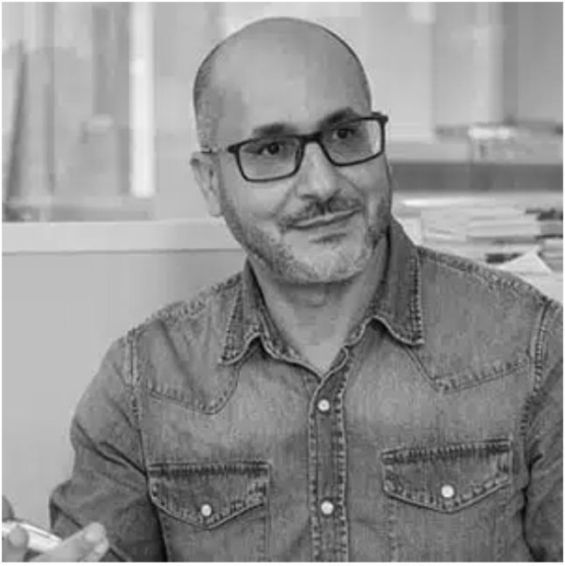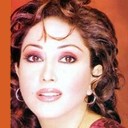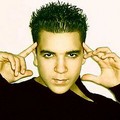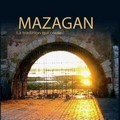Fethi Aboubeker, born to Moroccan parents in Tlemcen, Algeria, in 1967, carries the complex and poignant story of his family, marked by successive migrations and painful separations. Drawn by Algeria's economic opportunities, his parents moved to the westernmost part of the country. «It was a period of significant development for Algeria under French occupation,» he explains.
His mother, also born in Tlemcen to Moroccan parents, and his father, originally from Tafilalet, who moved to Algeria with his own father, represent the first generation of migrants. Of the family's seven children, five were born in Algeria, while the last two, twin daughters, were born in France in 1976.
Early Childhood in Algeria (1967 - 1974)
Fethi vividly recalls his early years in Algeria, deeply immersed in the local culture. «I remember exactly where we lived, how to get to school, how to go shopping, and how to get to football games. I also have vivid memories of our family's grocery store, the aroma of roasted coffee, and vegetable stalls.» Similarly, summer vacations at his grandfather's place near Tlemcen left lasting memories.
Separation and Trauma (1974 - 1975) After working in France for six years, Fethi's father managed to reunite the family in 1974. «The condition for our family reunification was financial stability,» says Fethi. «In Tlemcen, we saw our father once or twice a year during his vacations, with or without a promise to take us to France,» he recalls. So, France represented a second chance. «It was the height of the Trente Glorieuses, a period of rapid industrial development, and many people came to make up for the labor shortage,» he points out.
However, the return to Morocco of his maternal family was marked by the support of King Hassan II, which enabled a rapid and stable reintegration into the Kingdom. Thanks to this important support, the children were able to resume their studies, and the adults to find work.
Arrival in France (August 1974)
Fethi Aboubeker approached his arrival in France as a genuine rebirth. At the age of seven, he discovered a new world, with no command of the French language, but full of promise and opportunity. «Our arrival was experienced as a new adventure, an immersion in a different culture and a new way of life. There was a playful side to it». What's more, the change of scenery helped consolidate ties with his father, transforming a situation of separation into an opportunity to strengthen the family.
The journey from Morocco, via Spain, to Bordeaux, France was an adventurous one. From the child's amazement at the lights of Fez at night, to the logistical challenges in Tangier where the family found themselves temporarily stuck in a hotel, to the freight train that caught fire in southern Spain, each stage had a profound effect on him.
School played an essential role in his integration. Guided by his teachers and immersed in a stimulating educational environment, Fethi quickly adapted. «Thanks to my primary school teachers, I melted into the mold. When you're young, you can adapt quickly», he reports. Education not only enabled him to acquire the French language, but also to forge the social bonds essential to his development.
What's more, he never felt a social gap with his peers, as their respective parents all worked close to factories. «That was the decisive factor. Within this population, social classes were homogeneous, whether our origins were Moroccan, Portuguese or French; we shared the common denominator of belonging to working-class families, and socially, no distinction was palpable».
In honor of the intellectual heritage passed down by his uncles and grandfather, all distinguished teachers, Fethi Aboubeker made his studies a priority. «When I left Algeria, my grandfather gave me 4 or 5 books and said: 'Take them with you, continue your studies, that should be your first priority'». The family environment thus nurtured his penchant for learning, prioritizing his studies, despite the professional opportunities that he came across as early as during high school.
First steps towards the airwaves
Radio is a passion deeply rooted in Fethi's personal and family history. Evenings spent in Morocco listening to Thomas Dutronc's cult record «Il est 5h, Paris s'éveille» on radio channel Europe1, «had become a ritual» shared with his uncles. «Radio voices, with no associated faces, have always held a special fascination for me», he confides.
At the age of 14, Fethi was caught up in the wave of free radio, meeting influential French radio figures. However, his parents «advised him to watch his back and pursue serious scientific studies», considering «radio a mere hobby».
Although held back by family apprehensions, he continued to reconcile his studies with his passion for politics. «I really saw this as my future vocation: to interview politicians and business leaders, to confront them with their modes of governance and strategies», he declares with determination. In addition, his university career in economics and management, enriched by training in political science, gave concrete expression to his ambition to understand and analyze the complex workings of society.
In a bold move, Fethi «created his own path by learning on the job». To do so, he regularly visited a radio station far from his home, nestled high up in a mobile home. He learned the rudiments of the trade by carefully observing the work of the radio announcers. Thanks to his perseverance, by coming in every Wednesday afternoon, he was introduced to production: handling microphones, launching soundtracks, broadcasting commercials and reports, answering live calls. This comprehensive training provided him with the skills he needed to get started at the microphone. Early morning starts were an integral part of his routine. On weekends, he and other journalists got up at the crack of dawn to buy the first newspapers and prepare the press review for the 7 am broadcasts. This routine, far from being a chore, represented a playful game for him, amazed to see professionals getting paid to follow their passion.
«Watching, listening, reading»
Fethi has always sought to maintain a strong link with his Moroccan roots through music, literature and the visual arts. As he points out, «sharing one's native culture is essentially done through emotions and artistic expression, whether in the fields of art, cinema, painting, architecture or history».
Music plays a central role in this emotional transmission. Fethi refers to «Arab-Andalusian, urban, Arab-Berber music», pointing out that what his parents listened to still resonates with him through the emotion it evokes. Similarly, culinary culture is for him another essential means of sharing and transmitting cultural links, where each dish tells a story and evokes precious memories of his childhood.
He has been careful to share each of these aspects with his two daughters, Naïla (24) and Louna (22), without forgetting one fundamental element: traveling to and, more specifically, discovering Morocco. When they came of age, Fethi planned a road trip from Paris to Tangier, where some of his family still live. As he describes it, the trip was much more than a simple journey.
«It was a special moment with my two daughters to talk to them about us, our memories, our Moroccan culture, what emotions we kept from these great journeys. The final stage consists of crossing the Strait of Gibraltar, which always arouses indescribable emotion. An emotion that they, in turn, were able to share».
Transmission is an important part of Fethi's life, both professionally and personally. For five years, he has shared his field expertise with postgraduate students in research seminars, combining theory and practice. In particular, he developed a partnership with Cadi Ayyad University in Marrakech. «We used to contribute to these conferences on behalf of France, they were called 'Journées du Marketing, de la gestion et de l'économie de l'université'», he recalls.
These multi-disciplinary colloquia, bringing together students from countries as diverse as Canada, Egypt and Australia, aimed to explore developments in economics and management research and their potential impact on the development of Morocco's southern provinces. «We had to do it in these places to show the development potential of these territories», he stresses, referring to seminars that began in Marrakech and continued in Laâyoune and Dakhla.
After this experience in higher education and research, he devoted himself fully to his vocation as a consultant in corporate organization and finance, a profession he has been practicing for 24 years. «My assignments involve economic, financial and social diagnostics. This leads me to interview managers to try and understand their strategy and respond to specific requests», he reports.
In the future, Fethi and his colleagues plan to launch a specialized web radio station, designed for a specific niche in their field of activity, with a strong focus on the world of podcasts. «My approach to radio now includes podcasts», to the detriment of live radio, which he prefers for its spontaneity. This project will enable him to maintain a link with his radio roots, which are the common thread running through his life.




 chargement...
chargement...












